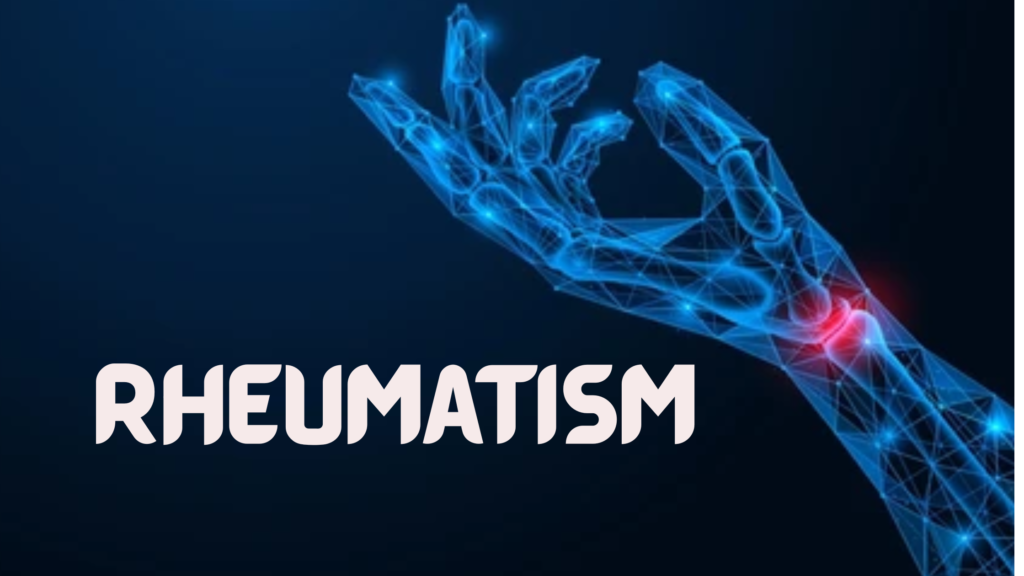What is Rheumatism? 🤕🦴
Rheumatism is a general term used to describe various painful conditions affecting the joints, muscles, and connective tissues. It’s not a specific disease but often refers to disorders that cause inflammation, pain, stiffness, and swelling in these areas.
Common Types of Rheumatism
- Rheumatoid arthritis: An autoimmune disease causing chronic joint inflammation
- Osteoarthritis: Degenerative joint disease caused by wear and tear
- Fibromyalgia: Characterized by widespread muscle pain and fatigue
- Lupus and other autoimmune diseases: Can cause rheumatic symptoms affecting multiple organs
Symptoms
- Joint pain and stiffness, especially in the morning or after inactivity 🦵🖐️
- Swelling and redness around joints
- Muscle aches and weakness
- Fatigue and reduced range of motion
- Sometimes fever and weight loss (in autoimmune forms)
Causes
- Autoimmune reactions (body attacking its own tissues)
- Wear and tear of joints
- Infections triggering inflammation
- Genetic and environmental factors
Diagnosis
- Physical examination and medical history
- Blood tests (e.g., rheumatoid factor, anti-CCP antibodies)
- Imaging like X-rays or MRI to assess joint damage
Treatment
- Medications: NSAIDs, corticosteroids, disease-modifying antirheumatic drugs (DMARDs)
- Physical therapy and exercise
- Lifestyle changes like weight management and healthy diet
- In severe cases, surgery may be needed
Prevention & Management
- Regular exercise to maintain joint flexibility
- Healthy diet rich in anti-inflammatory foods
- Avoiding repetitive joint stress
- Early medical consultation for joint pain
